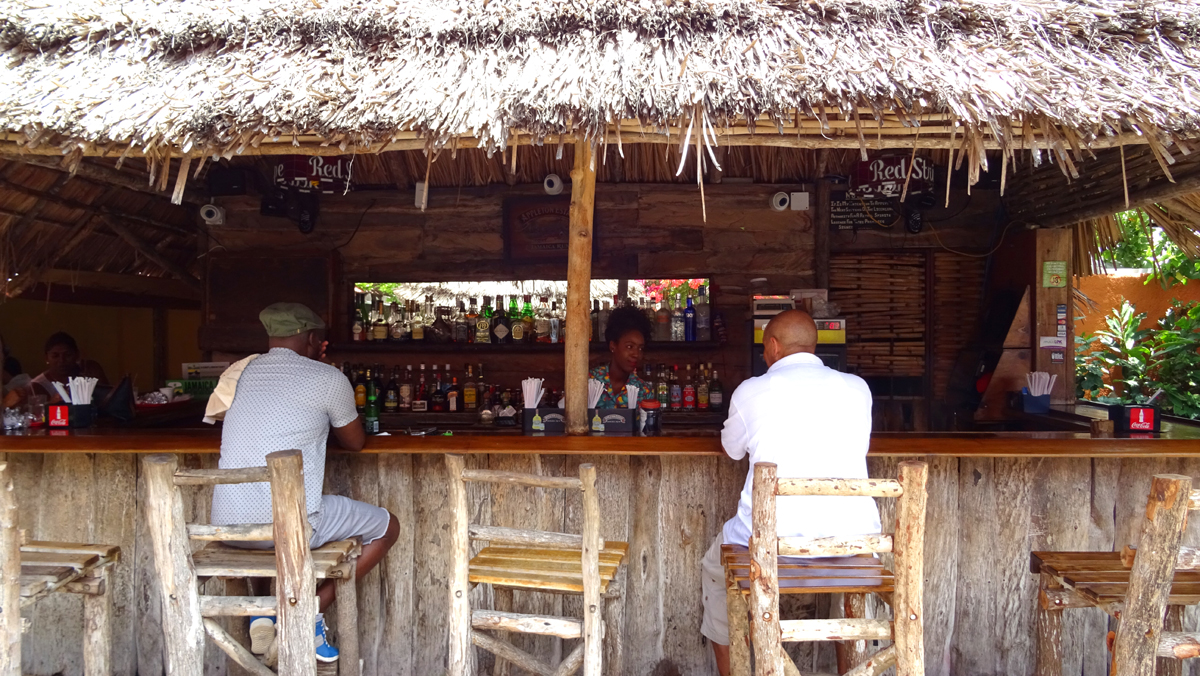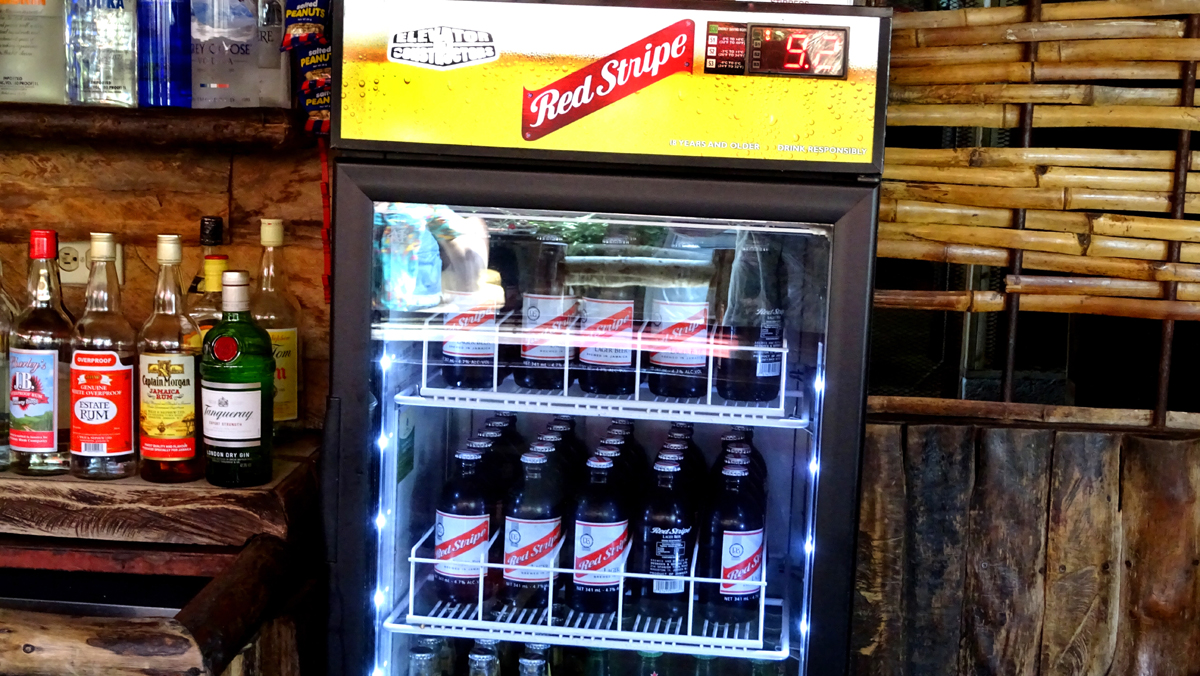Bringing the Heat in Jamaica--Scotch Bonnets and the Scoville Scale


Scotchies in Montego Bay is widely celebrated as the best jerk chicken pit in Jamaica. And its name is derived from the potent pepper that imbues jerk meats with their kick.
The Scotch Bonnett pepper that is the foundation of jerk chicken spices has a heat rating of between 100 thousand and 400 thousand Scoville units. The Jalapeño measures 25 hundred to 8 thousand units, so the Scotch Bonnet is fifty times hotter than a Jalapeño.

The Scotch Bonnet is almost never eaten whole and raw by anyone who is not on spring break, when such an act is typically performed after speaking the words, “Watch this. Hold my beer.” And you can “watch this” on dozens of instructional YouTube videos using the search words, “moron eats hot pepper.”

From a distance Scotchies gives the appearance of a house that is on fire, with smoke pouring from the roof. It’s the result of slow-roasting half-chickens by the dozens on a bed of pimento wood beneath sheets of corrugated tin.

Jerk chicken spices include Scotch Bonnets and locally-grown allspice; the dried berries from the pimento tree. Also scallions or green onions, fresh ginger and thyme. Different cooks will add soy sauce or vinegar, cinnamon or nutmeg, brown and white sugar, and marinate for either a long time or a long, long time. Just two or three Scotch Bonnets can spice up several pounds of chicken, drizzled with lime. You smash all the components with mortar and pestle and massage them into the chicken and your hands will feel the burn. Keep them away from your face. As the essential but not overpowering element in jerk marinade, the Scotch Bonnet ultimately delivers more flavor than heat.

Mr. Scoville was a pharmacologist who invented the hotness scale for a big drug company in 1912. He created the scale by feeding multiple human testers every pepper he could find. A team of five tasters ranked the peppers for heat until three of them could no longer detect any heat in the mildest peppers.
Those who have made the mistake of eating a Scotch Bonnet will not repeat it. Except for the man in a YouTube video titled, “Moron eats Scotch Bonnet pepper…again!”
The Carolina Reaper is currently ranked hottest and is a crossbreed of a Ghost Pepper and a Red Habanero. Its heat level is 1,569,300 Scoville Heat Units. One who has bitten it says the taste starts sweet and then turns to molten lava.
And so, to review. The Pepperoncini in your antipasto packs a mild 100 Scoville Heat Units. A Banana pepper is the same. A Green Bell pepper has zero heat. The Jamaican Scotch Bonnet flavoring jerk chicken tops out at 400 thousand heat units. Hot as a blacksmith’s apron. Hotter’n the hinges in Hades. Hot as a fire-eater’s tonsils. Hotter’n a hiccup in Hell.

A Word About Red Stripe
Some locals sniff that Red Stripe is for tourists, and when we were present at Scotchies green Heineken bottles inhabited the rustic bar in company with the red and white labels. But Red Stripe is indisputably the most iconic symbol of Jamaica aside from Usain Bolt smiling from a green and yellow T-shirt. Red Stripe beer appeared in the first James Bond movie, Dr. No, filmed around Ocho Rios. Red Stripe is classified as a North American Adjunct Lager, in the same family as a Coors or a Bud or a Pabst. A moderate 4.7% ABV.

One beer reviewer writes that Red Stripe is the beer equivalent of Bob Marley’s “No Woman No Cry.” “Everybody knows it, but those with more discerning taste know there are better Marley songs.” But Jamaica’s national beer partners perfectly with jerk chicken and a hot beach. I like Red Stripe. Which is fortunate because Red Stripe has a virtual monopoly at the bars of most major resorts (where you can sometimes find Heineken behind the bar). Skip the Red Stripe Light. Unkind critics describe its taste as like classic Red Stripe mixed with water in a dilution of 5 to 1. I can’t disagree—thin and flavorless.

I stick with Red Stripe in Jamaica, but for those who seek alternatives there is Dragon (a stout made by Red Stripe), Heineken and Guinness. Both Heineken and Guinness are locally brewed in Jamaica.
